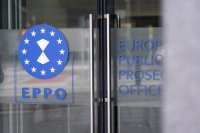
A study conducted by Sofia University and the consumer group “Active Consumers” has detected high concentrations of bacteria in hot tap water. Whether there are dangerous bacteria or viruses, and in what concentrations, is expected to become clear by the end of the year. According to “Active Consumers,” there are currently no regulatory standards or systematic controls for hot water supply intended for domestic use.
Dr Sergey Ivanov, Faculty of Biology, Sofia University “St. Kliment Ohridski”:
“Samples are collected in sterile, single-use containers, then placed in a refrigerated bag and transported to the laboratory.”
In June, 14 samples — including both hot and cold water — were taken from three cities: Sofia, Plovdiv, and Pleven. The study compares the microbiological purity of hot and cold water.
Dr Ivanov:
“In each droplet, we can detect the DNA of bacteria and viruses. We then identify them using PCR, which is exactly what we are doing at the moment.”
The results were surprising.
Dr Ivanov:
“Contrary to expectations, hot water contains far more bacteria — on average 22 times more — which should not be the case.”
In two samples — from the Sofia residential district of 'Geo Milev' and Gurgulyat Street in the city of Pleven (Northern Bulgaria) — the difference was nearly 70-fold. According to the scientists, the main problem is the temperature of the hot water, which averaged 52°C, below the recommended 55°C. In over 20% of the samples, the temperature was even below 50°C, creating an environment where bacteria thrive.
The district heating company in Sofia explained that water temperature depends on current building consumption and the condition of the internal plumbing system.
Dr Sergey Ivanov, Faculty of Biology, Sofia University “St. Kliment Ohridski”:
“The most risky water temperature is between 20°C and 50°C. Bacteria can form a biofilm — a thin, often transparent layer, which is actually composed of bacteria. The situation in Bulgaria was previously unknown. We do not have monitoring programmes, nor do we even have legislation for regional health inspectorates and heating companies to respond to.”
Scientists recommend flushing cold water for at least one minute before use and avoiding the consumption of hot tap water for drinking.
 Европейската прокуратура призна Теодора Георгиева за виновна, иска уволнението й
Европейската прокуратура призна Теодора Георгиева за виновна, иска уволнението й
 Бъдещето на Украйна: Делегация от Киев се среща с пратениците от САЩ
Бъдещето на Украйна: Делегация от Киев се среща с пратениците от САЩ